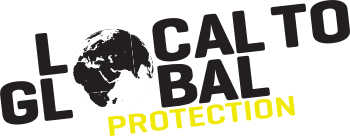Our community-oriented action research explores how people living through crisis and natural disaster go about protecting themselves, their families and their communities.
Research
Research has always formed the basis of our work. Beginning from our initial research into how communities and individuals respond to meet their protection needs in a crisis, we increasingly focus on how community led responses are implemented and used around the world to enable people affected by crisis to take ownership and leadership of a response. For country specific research please use the drop down menu above.
L2GP’s research uses a community-oriented approach with international and national researchers working closely together to interview individuals and focus groups in the contexts we work in. Research findings are discussed with participants, communities and relevant national actors at the draft stages and different perspectives reflected in the reports. Following this methodology we have conducted action research in many contexts including Haiti, Kenya, Myanmar, the occupied Palestinian Territories, the Philippines, Sudan, South Sudan, Syria and Zimbabwe.
Our research is complemented at the global level with research on the humanitarian system and funding patterns, and perspectives and approaches to localisation and mutual aid.
Countries:
Alongside supporting implementation of sclr with local partners around the world, we work with national researchers to explore perspectives on humanitarian crises in individual contexts.
The Humanitarian Economy
Tracing global Grand Bargain commitments to localisation through humanitarian funding flows.
The analysis and opinions in the individual reports are solely the responsibility of the credited author(s) and cannot be attributed to any of the involved institutions.
